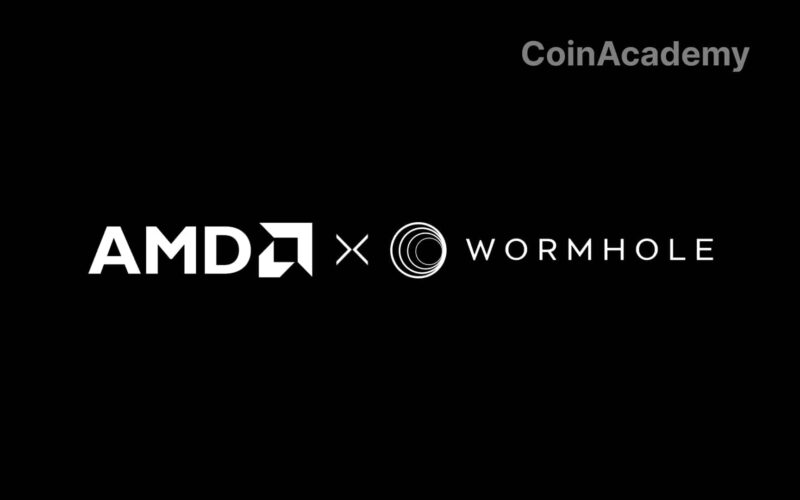AMD brings FPGA hardware accelerators to Wormhole to boost speed and scalability of multi-chain blockchain applications
Engineers plan to launch zero-knowledge lightweight clients for trustless multi-chain messaging between major blockchains
This partnership marks a step towards accelerating decentralized computing and foreshadows a growing synergy between AI and blockchain in web3
Advanced Micro Devices (AMD) is expanding its semiconductor expertise into the web3 space by collaborating with the Wormhole ecosystem to integrate enterprise-level hardware accelerators that aim to facilitate interoperability between blockchains.
Strategic collaboration between AMD and Wormhole
Renowned semiconductor developer AMD is taking a major step towards supporting blockchain interoperability by integrating its FPGA hardware accelerators into the Wormhole ecosystem, a platform known for powering large-scale multi-chain applications and bridges.
This initiative, announced on February 21, marks a significant collaboration that will also see AMD bringing its hardware acceleration expertise and technical support to enhance the speed and scalability of multi-chain applications developed with Wormhole.
Trustless multi-chain messaging
In the coming months, AMD and Wormhole engineers plan to launch deployments on the mainnet of various zero-knowledge lightweight clients, enabling trustless message passing between multiple blockchains, including Ethereum, Near, Solana, Aptos, Sui, and Cosmos. The adoption of zero-knowledge proofs (ZKP) promises to reduce Wormhole’s reliance on centralized node operators, moving towards a trustless solution.
AMD accelerates decentralized computing in blockchain
Hamid Salehi, Product Management Director for the Adaptive and Embedded Computing Group at AMD, expresses excitement about accelerating decentralized computing in the blockchain industry. On the other hand, Rehul Maganti, a contributor to the Wormhole ecosystem, sees this partnership as a way to approach low-latency and trustless multi-chain messaging, significantly improving user experience in terms of speed and security through ZK-enabled corridors.




